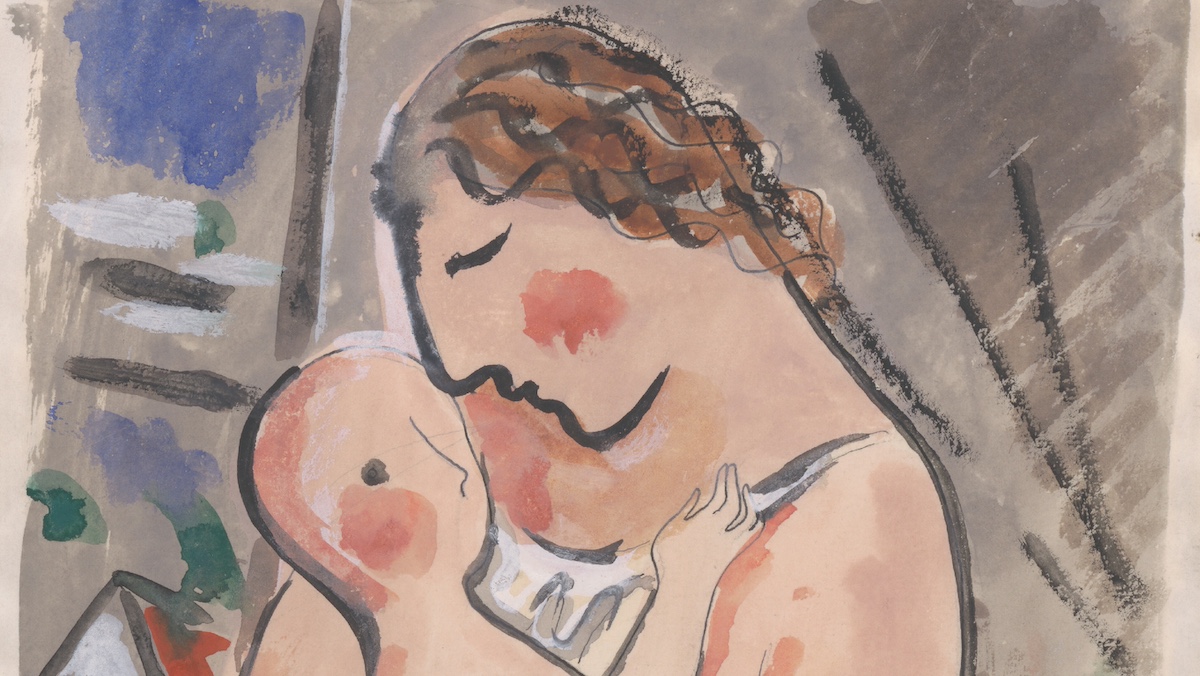It’s been a long-standing assumption in progressive circles that Article 41.2 of the Irish Constitution, which recognizes and undertakes to support a woman’s “life within the home,” is a relic of a dark past when the Catholic Church held far too much power over people’s lives. It has been said to promote offensive stereotypes, and discussion of the provision is invariably accompanied by a stock image of a frustrated 1950’s housewife or a husband with his feet up.
Why, then, might anyone take issue with the re-wording of this “sexist” clause to remove references to women and mothers? After all, aren’t men and women both supposed to contribute equally to caring and domestic work in a modern society? Could a “No” vote in the upcoming referendum to amend the Constitution represent anything other than an archaic, regressive, and even misogynistic viewpoint?
As academics researching sex-based wage gaps and women’s maternity rights, we are aware of the complexities around issues of women, parenthood, and reproductive labour. Women undertake most of the care work in society. This is true not only in the context of parenthood in general, but for single parents (the vast majority of whom are women), and women providing regular grandparent and other wider family care. Women are doing this work despite their paid labour and their rapidly rising education levels, and regardless of policymakers’ attempts to manufacture gender equality.
The fashionable assumption is that this unequal care work done by women is a result of sex stereotypes around what work men and women ought to carry out. Gender equality initiatives have aimed to tackle this problem through policies to encourage women to work more outside the home. In the last fifty years, women have indeed entered the labour market en masse, and their choice to work has become an accepted part of contemporary culture (although it’s unclear how much public policy has influenced these trends). By contrast, efforts to encourage men to spend more time in caring or domestic labour are far fewer. The policies that do exist—such as shared parental and paternity leave—remain underused. The result is that women are working harder than ever, often with one shift of paid work and a second (unpaid) shift of care. Women seek flexible work to fit around their dual roles as workers and mothers in a way that men do not. Such work is often less lucrative, leading to sex-based wage gaps and career-based inequities.
Amending Article 41.2 won’t change any of this. Why?
Because of the “elephant in the room” of gender equality policy: not all women’s care work can—or should—be carried out by someone else. Indeed, many women do not want it to be.
Mothers play a unique, vital, and irreplaceable role in infant and child development and attachment in the early years. This work is so important that the foundational human rights instrument, the Universal Declaration of Human Rights, proclaims that “Motherhood and childhood are entitled to special care and assistance.” This and other human rights instruments uphold that women have a right to be supported in breastfeeding and caring for their infants and young children.
Pregnancy and birth do not just happen in a puff of smoke. They come at great physical, emotional, and psychological cost, and they trigger a profound personal transformation for women. Even the most die-hard proponent of gender equity in the home can find their ideals clashing with the reality of life with multiple children, pregnancy complications, the intensity of breastfeeding, and the day-to-day allocation of parental tasks.
These are not mere stereotypes or societally constructed gender roles. They are actualities. Every attempt to neutralize language around sex in law and policy sends a small but perceptible signal that these realities in mothers’ lives are insignificant. This is what connects these seemingly straightforward—and, on the face of it, reasonable—Irish Constitutional amendment proposals with broader debates that are often dismissively called “culture wars.”
The debate around the Constitution is being presented as a battle between forward-thinking feminism versus the old conservatives who refuse to move with the times. Is this really the case?
While some strands of feminism have sought to marginalise motherhood, others have appreciated the need for society to value women’s reproductive and caregiving work. Feminist academic Claire Jane Jones, for example, has argued that since “all human society, history, culture and economy depends on women’s life-making labour,” that labour “should be recognised, valued and supported.” Silvia Frederici has long spoken of the “established hierarchy” in which the caring that women do is unrecognized. As philosopher Nina Power has pointed out here at Fairer Disputations, childbirth “is not an imperative that follows from the fact of womanhood.” Yet, she emphasizes, “every child is born of a woman. We have not, nor should we ever, transcend this fleshy reality.”
Nobody is suggesting that the drafters of The Irish Constitution had women’s emancipation from patriarchy in mind. At best, they were coming from a place of paternalistic benevolence. Still, it hardly follows that, in stating that mothers “shall not be obliged by economic necessity” to engage in paid labour, Article 41.2 is somehow misogynistic. Some women willingly choose to stay at home with their children (especially their babies), despite the financial and career-based consequences. Many others work because it is absolutely an “economic necessity” but would rather be at home. These mothers often resent forms of feminism that equate women’s societal value and personal fulfillment with paid work and deny the importance of their care. Removing such women’s explicit recognition and the promise of support from the Constitution could be, for some, further proof of society’s sneering distaste for their choices.
Absolutely, there are conversations to be had around men’s contribution to domestic labour. It should go without saying that fathers and wider family structures play a crucial role in caring, and that their role should be supported. Flexible work, shared leave, the destigmatisation of men’s caring role in society: these are all welcome. Having a more equally shared division of labour in the home can free up women’s time and energy, which are depleted by the second shift. But the assumption of complete interchangeability of the sexes that forms the basis of some gender equality policy can be problematic, be that at a practical or symbolic level.
Women’s role in motherhood and caring is not a mere stereotype, nor ought it be an insulting one. Indeed, a truly progressive society is one that supports, protects, and makes space for attachment and the mother-infant bond as a foundational aspect of all other policy.
Is the wording of Article 41.2 of its time? Yes. But is it insulting to recognise women’s reproductive labour and their care for their children?
Perhaps that depends how low a view you have of the value of that essential work.




